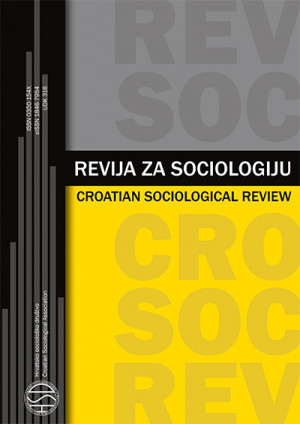Usporedba ishoda djece iz obitelji istospolnih i raznospolnih partnera: osvrt na kvantitativne studije provedene na slučajnim reprezentativnim uzorcima
Comparing the Outcomes of Children of Same-
Sex and Opposite-Sex Partners: Overview of the Quantitative Studies Conducted on Random Representative Samples
Author(s): Tanja Vučković JurošSubject(s): Preschool education, Family and social welfare, Sociology of Education
Published by: Hrvatsko sociološko društvo
Keywords: children; well-being of children; harmful outcomes of upbringing; family; same-sex partners; opposite-sex partners; homoparentality;
Summary/Abstract: The research on homopaternality started in the late 1970s and early 1980s in the Anglo-Saxon context. A great majority of those studies found no evidence of harmful outcomes for the children of lesbians and gays resulting from their parents’ sexual orientation. Those studies, however, were typically limited by small-size samples and restricted to the analysis of lesbian families. Quantitative studies comparing the outcomes of children from different family structures based on random representative samples have been conducted since the beginning of the 21st century. The present paper systematically reviews that research by focusing on three points of methodological debate identified in the literature on homoparentality: sample characteristics, operationalisation of the category of same-sex partners’ children, and the inclusion of the control for family stability. The results of most quantitative studies based on random representative samples were consistent with the findings of the previous studies. The minority of those studies that did find some differences in harmful outcomes between the children of same-sex and opposite-sex partners were characterised by serious methodological flaws. They ranged from artificially inflating the category of the children of same-sex parents (for instance, by including children who were possibly or probably never raised by a same-sex couple) to omitting a control variable of family stability from the analyses. Therefore, this review concludes that scientifically the most credible quantitative studies support the conclusions of numerous earlier qualitative and quantitative studies conducted using convenience samples – there is no credible evidence that the children raised by same-sex partners fare worse than the children of opposite-sex partners due to the sexual orientation of their parents.
Journal: Revija za sociologiju
- Issue Year: 47/2017
- Issue No: 1
- Page Range: 65-96
- Page Count: 21
- Language: Croatian

